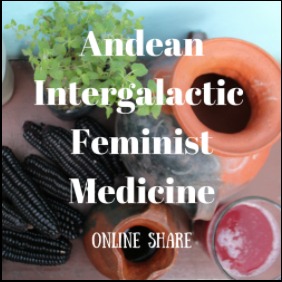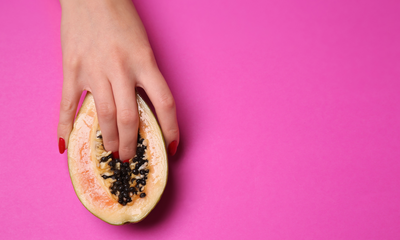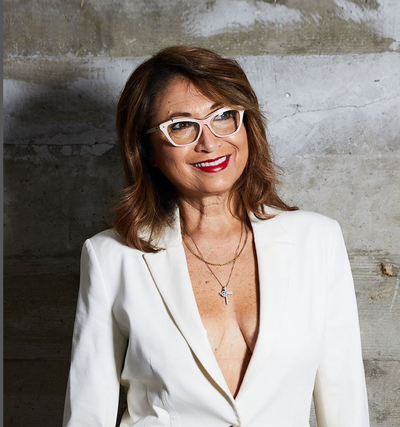They teach us to be scared of those that can invade our bodies, but fail to teach us about our bodies they are trying to invade.
I was nine-years-old, walking around Jackson Heights with my mother doing her regular schmegular compras. I remember telling my mom I wanted empanadas while entering a Colombian bakery. I was so excited knowing I was about to eat delicious food and have a jugo de lulo. As soon I took a sip, I felt a light flow down my panties and thought, “that was not jugo de lulo.” Once I got inside the bathroom, I looked down and there was blood streaming down my thigh. I screamed so loud, mi mami heard me from the other side of the bakery. “QUE ES ESTO????” I said as I looked so frighten as if someone stabbed my vulva. But in reality, I just did not know what was going on. She quickly said, “no te preocupes, que vas a estar bien”, still not explaining what was going on with my body, was I normal? Was something wrong with me? Who knows, because clearly not me. After we go into a cab (where I was crying and trying not to stain the car), my mother gave me a very long heavy big cotton pad that she used in her generation and said, “just put this between your legs and go lay down!”. That was when she finally said—“tienes tu periodo.”
How well do you know your body after being told not to touch yourself, after being told not to look down there…because I hope to know each and every bump, brush my pubic hair without fearing it, and fearlessly looking at my blood as if it were drops of red paint trying to draw all the progress of self-love I have made.
Working at Planned Parenthood and even hearing many stories from my brown amigis, our period stories are super similar in many ways. Parents usually never tell us what it means, how we are going to feel, or even worse, tell us that we are “finally a woman” (like what the actual f*ck. Also, super sexualized at a young age? Not widdit). It is important to know that the way that we think about menstruation comes from historical oppressions to women’s bodies, queer trans bodies, and specifically, indigenous brown bodies. Because of patriarchy, we do not have easy access to accurate information about our bodies, the knowledge of our different fluids such as cervical fluids, and of course, even our menstrual blood. And even when we do have this kind of access, it is always available through a gendered bias language, cis-heteronormative and white centered lens. Even when talking about “liberating the period”, we need to think critically of who gets to free bleed. When we hear of free bleeding, we often think of white women bleeding through their underwear in public to make a point about ‘natural cycles’. However, if brown or black folks were to free bleed, it would more likely be seen as “dirty”, “disgusting”, “unsanitary”, etc. Yet, we are the OG’s of menstruation knowledge, am I right? We been doing this, still doing this, just like anything else. It is up to us to reclaim our anatomy, unlearn what we have been taught to think of our bodies, and really know how our cycle can affect us individually, emotionally, and spiritually.
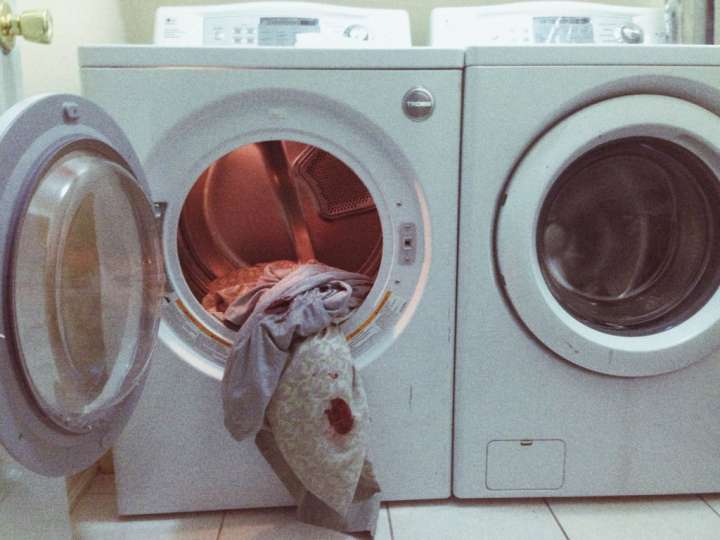
Photo Credit: Rupi Kaur
Thinking back to my childhood, I remember growing up with watching novelas like Theresa, Rebelde, and even Sin Tetas No Hay Paraiso. You would think that while I was watching Sin Tetas No Hay Paraiso, my parents would talk about what my anatomy means or why was our bodies being sold as commodity to men—yeah right! Being an adult sexuality educator has given me the opportunity to meet where adults are at in terms of their own thoughts and gave me tools that I can use to deconstruct ideologies not only about our anatomy, but also about healthy relationships, consent, etc.
However, I would say that learning about your own anatomy takes a lot of work, and I think that that is the key of being an outstanding sex educator because the more you learn about yourself, the more you can learn how the system can affect you, and how that can affect other people. Seeing menstruation as a tool can help someone understand their body and how they can connect to their natural cycle, control fertility, and (re)learn knowledge from their ancestors.
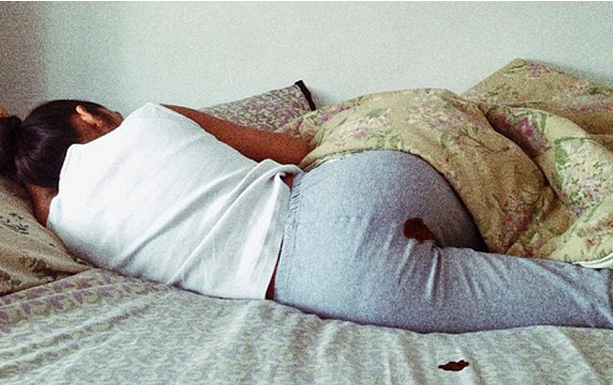
Photo Credit: Rupi Kaur
Loba loca, is a queer yerbetera, seed-saver and doula. Loba often shares a lot of tips on menstruation, herbalism, plant relations, social justice, and autonomous health. Loba provides many remedies and promotions for classes, and items such as moon pads and eco-menstruating tools that one can need. Like many other bruja feministas, Loba has invested a lot of time in researching various sources of knowledge from abuelitas, tias, plants, and indigenous communities. I mention Loba’s work because I think it is important to always look and demand for information that does not come from a western point of view. Western capitalistic institutions has not only made me feel incapable, but has also made me feel guilty for feeling worthless when it comes productivity during my period. So like Loba has stated, “to dismiss menstrual pain is violent and it continues [to] perpetuate ideas about silencing our pain and discomfort. Cramps are very real and if you can lay down and break away from capitalist production—do it. It does not make you lazy, it means you are going through a natural cycle…you are doing a lot of labor. It might not be recognized by society, but it is as hell, of a lot of labor.”
So when I tell you that they teach us to be scared of invaders, but do not teach us what they are trying to invade—do you know the answer?
How well do you know your body after being told not to touch yourself, after being told not to look down there…because I hope to know each and every bump, brush my pubic hair without fearing it, and fearlessly looking at my blood as if it were drops of red paint trying to draw all the progress of self-love I have made.


